- News
- Reviews
- Bikes
- Components
- Bar tape & grips
- Bottom brackets
- Brake & gear cables
- Brake & STI levers
- Brake pads & spares
- Brakes
- Cassettes & freewheels
- Chains
- Chainsets & chainrings
- Derailleurs - front
- Derailleurs - rear
- Forks
- Gear levers & shifters
- Groupsets
- Handlebars & extensions
- Headsets
- Hubs
- Inner tubes
- Pedals
- Quick releases & skewers
- Saddles
- Seatposts
- Stems
- Wheels
- Tyres
- Tubeless valves
- Accessories
- Accessories - misc
- Computer mounts
- Bags
- Bar ends
- Bike bags & cases
- Bottle cages
- Bottles
- Cameras
- Car racks
- Child seats
- Computers
- Glasses
- GPS units
- Helmets
- Lights - front
- Lights - rear
- Lights - sets
- Locks
- Mirrors
- Mudguards
- Racks
- Pumps & CO2 inflators
- Puncture kits
- Reflectives
- Smart watches
- Stands and racks
- Trailers
- Clothing
- Health, fitness and nutrition
- Tools and workshop
- Miscellaneous
- Buyers Guides
- Features
- Forum
- Recommends
- Podcast
review
£1,600.00
VERDICT:
A vibrant, quick-handling and stiff race machine that responds brilliantly in the bends
Weight:
8,030g
Contact:
At road.cc every product is thoroughly tested for as long as it takes to get a proper insight into how well it works. Our reviewers are experienced cyclists that we trust to be objective. While we strive to ensure that opinions expressed are backed up by facts, reviews are by their nature an informed opinion, not a definitive verdict. We don't intentionally try to break anything (except locks) but we do try to look for weak points in any design. The overall score is not just an average of the other scores: it reflects both a product's function and value – with value determined by how a product compares with items of similar spec, quality, and price.
What the road.cc scores meanGood scores are more common than bad, because fortunately good products are more common than bad.
- Exceptional
- Excellent
- Very Good
- Good
- Quite good
- Average
- Not so good
- Poor
- Bad
- Appalling
If you are a fan of a rim-braked aluminium racer that is tight, nimble and just on the right side of stiff so as not to shake your fillings out, then you are in luck. New kid on the block Tresca has delivered exactly that with its first model, the TCA-1. With steering that'll give you whiplash if you push it to its limits, this thing is a grin-inducing speed machine that'll brighten up your day, whether you're out for a quick blast or taking things easier covering a century, though still at a decent lick.
- Pros: Sharp handling with loads of feedback; well-specced package for the money
- Cons: Ride isn't quite as comfortable as some of the competition
Ride
I've been riding road bikes for pretty much 20 years now, and while the technology has improved massively in that time, with electronic shifting, disc brakes and carbon fibre left, right and centre, I got hooked on riding because of bikes like this.
The highlight of the Tresca for me is the handling. It's quick but perfectly weighted and balanced, allowing you to really explore your limits.
If you are a timid descender you might find it a little twitchy unless you relax and let the bike do its thing, but if you are one of those riders who's confident in their own ability and kind of thinks, 'F**k it, I'll just see how fast I can take that bend,' then you are in for a treat.
I kept chucking the Tresca down my local technical descents and I couldn't fault the way it carved its way from apex to apex, even with the camber shifting to upset the weight.
I had some close calls, finding the grip limits of the tyres, but the amount of feedback you get back from the frame and fork allows you to control the slide or shift your bodyweight to get things back under control pretty easily. Basically, it's an absolute hoot.
Calming things down a little, the TCA-1 is a fun bike to ride at a more sensible pace too. I did a couple of 100-mile rides aboard it – you can still have some fun in the twisty bits, but elsewhere I could just knock things back a touch and tap out the miles without really thinking about it.
The Tresca doesn't have the most refined frame out there when it comes to comfort (it actually reminds me of Cannondale's CAAD 10, a little bit old school) but even with the bit of buzziness from the road I wouldn't say it is harsh – far from it, in fact.
Aluminium has come a long way in terms of finding a good balance of stiffness versus ride quality, and the Tresca is a good example of that, if not quite up there with the Specialized Allez Sprint Comp or my benchmark, the Bowman Palace:R. I'd finish longer jaunts knowing that I'd done a decent ride but without exactly feeling broken, especially in the upper body where it is often more evident.
This Shimano 105 build comes in at 8.03kg (17.7lb), which is a pretty decent weight, and it feels it out on the road. Acceleration and climbing are achieved with little fuss, and it was a joy to take the Tresca into the hills. I'm not a climber by any stretch of the imagination, but I enjoyed tackling hills on the TCA-1. Thanks to its stiffness and weight, it gives a lot back on the climbs; if you get out of the saddle and give it the beans you're rewarded with eager-feeling forward propulsion. The stiffness means you don't feel like you are wasting any effort, it responds well to really hard efforts out of the saddle.
I'd sum the ride up as focused on speed and performance but without sacrificing all-round usability.
Frame and fork
The team behind Tresca have designed the TCA-1 from the ground up, starting from basic sketches through to 3D modelling, using various computer programs to calculate forces and loadings through the frame and fork before even starting to create real world prototypes.
Setting a target of a sub-£1,000 retail cost for the frameset, Tresca decided that aluminium alloy would be the best option, concluding that creating a 'great aluminium frame could be vastly superior to a lower-end carbon frame'. A comment I would definitely go along with.
There has been a lot of development involved, with the 6066 grade alloy material being butted to create variable wall thicknesses and hydroformed to create the kind of tube profiles only achievable with the use of carbon a few years ago.
Up at the front you get a tapered head tube, with a 1 1/8in upper bearing increasing to a 1 1/2in at the fork end. It's something we see a lot and brings extra stiffness to the front end to deal with steering and braking loads.
It all works as the handling is absolutely spot on, with the full-carbon fibre fork matching up to the stiffness of the frame at the front end.
Like most performance bikes, the TCA-1 follows a common theme of being oversized at the business end of the frame: the down tube, bottom bracket area and chainstays.
The down tube increases in size from top to bottom, as does the seat tube with its flared bottom section where it meets the bottom bracket shell. Tresca has done this to give a much larger cross-sectional weld area at the part of the frameset that is going to see huge loads transferred to it from your pedalling action.
Bowman's Palace:R does something similar, and I first saw it on the original Kinesis Aithein, although that was only on the drive side of the seat tube.
Original designs of the TCA-1 were going down the BB30 route, but with the number of tolerance issues causing BB30 bikes to creak at the bottom bracket, a decision was made to go for a standard threaded bottom bracket instead; given the UK weather, it's the better option in my opinion.
To increase comfort at probably one of the most important contact points – the saddle – Tresca has designed the seat tube to work with a 25.4mm diameter seatpost, the idea being that the smaller than typical diameter allows more flex. In the real world, the 1.8mm difference over that of a more common 27.2mm seatpost will be negligible, to be honest, and will do little to offset the stiffness of the frame. Tresca has dropped the seatstays a touch, too, to promote comfort here.
It's good to see that the TCA-1 has full internal cable routing from front to rear, something that isn't always achievable with thin aluminium tube walls, and it certainly doesn't feel like removing the material has had a detrimental effect on the stiffness of the chainstays.
This is a race bike so you won't find – or need – mounts for mudguards or racks, so all you get is a couple of bottle cage mounting points, keeping everything clean and simple.
Sizing-wise there are just three options in the range: small, medium and large, with top tube lengths of 528mm, 547mm and 569mm. Tresca has used the stack and reach measurements to develop the geometry, so you'll find the frames remain in proportion as they increase in size.
This medium has a stack of 552mm and a reach of 387mm, which gives an aggressive ratio of 1.42, planting it, as if we didn't already know, fully in the race category.
A short 978mm wheelbase keeps the bike tight and flickable, while a seat angle of 73.8 degrees puts you in a forward pedalling position.
The front end is pretty steep too, with the 72.9-degree head angle giving you the quick steering I mentioned earlier.
Overall quality and finish is pretty decent. The welding is tidy and it needs to be really, with nowhere to hide on the lower half of the frame. The raw finish won't be for everyone, but it certainly makes the bike stand out in a crowd.
Finishing kit
The Tresca is available as a frameset-only or in one of three builds, of which we have the entry level here: Shimano 105. You can also get an Ultegra or Dura-Ace model.
This is a very good specification and makes you think it's been put together by a bike rider rather than an accounts department because there are no hidden cheaper parts chucked into the mix.
As we've said countless times before, Shimano's latest R7000 is pretty much the best bang for buck groupset out there. Dave's review pretty much sums it up, but in a nutshell the shifting is awesome, being barely any different to that of Ultegra, as are the rim brakes, with loads of power and plenty of modulation. I'm also a big fan of the latest shaped brake levers.
Gearing-wise Tresca has given the TCA-1 the sensible option of a 52/36-tooth chainset and an 11-28t cassette. It covers all the gears you'll need at both ends for racing or just riding fast, to be honest, especially taking into account the light weight of the overall bike.
The handlebar and stem are from Fizik's catalogue, the alloy Cyrano R5 range, and it's quality stuff. It looks the business and offers plenty of overall stiffness.
The bar is also wrapped in Fizik's Microtex SuperLight tape, which offers plenty of cushioning without being bulky.
The seatpost is an FSA SL-K carbon fibre model which again brings a bit of class. Atop that we're back to Fizik once again and its Antares R5 Kium, one of my favourite all-round saddles.
Wheels and tyres
Tresca has played a blinder with the wheel choice, too: DT Swiss P 1800 Spline 23s are great all-rounders, and while you may fancy something a little more aero or lighter for racing, these will make a great training set of wheels or for fast group rides.
With their 23mm-deep rim they weigh around 1,600g for the set, and I can vouch for their ability to stand up to plenty of abuse as I owned a set for a couple of years.
Tyre-wise, the TCA-1 is shod with Continental's mid-level Grand Sport in a 25mm width. They aren't the fastest rolling or grippiest out there, but for all aspects of road riding they can't really be faulted. I've ridden them on countless test bikes over the years and they are pretty robust, shrugging off cuts and punctures well, even in the wet.
If you are racing or just want ultimate performance then upgrade to something a bit lighter, but straight out of the box they are a decent choice.
Value
The Tresca will cost you £1,600 for this Shimano 105 build, which I'd say isn't bad at all, but let's take a look at the opposition.
What about the two I've mentioned already, the Bowman Palace:R and the Specialized Allez Comp Sprint? The Bowman is available as a frameset only and will set you back £745, which is quite a chunk less than the Tresca's £850, and as I've said the Palace:R is still my benchmark.
Against the Allez, though, it fares a little better. The Specialized has a very similar build but is finished with own brand components for the cockpit and seating arrangements while costing £1,700.
Weight is negligible between the two, but one thing you have to remember is that Tresca is a small direct-sales bike company taking on the huge buying power of one of the largest makers in the business, and it still comes in 100 notes cheaper.
> Buyer's Guide: 13 of the best aluminium road bikes
Canyon does offer the Endurace AL 8.0 for a very impressive £1,179 with a full Ultegra groupset (I tested the 7.0 disc version here). You are getting basic wheels and finishing kit with the Canyon, though, and more relaxed geometry.
A Cannondale CAAD 12 105 will set you back £1,500, although I'm yet to ride one so I can't give much feedback on how it responds.
Conclusion
To sum it up, I think the Tresca TCA-1 is a great bike to ride; it's heavily influenced by the engineering angle but that, thankfully, hasn't destroyed the fun factor.
Verdict
A vibrant, quick-handling and stiff race machine that responds brilliantly in the bends
road.cc test report
Make and model: Tresca TCA-1 105
Size tested: Medium
About the bike
List the components used to build up the bike.
From Tresca:
FRAME TRESCA TCA-1
FORK TRESCA
HEADSET FSA Orbit
REAR DERAILLEUR Shimano RD-R7000
FRONT DERAILLEUR Shimano FD-R7000
BRAKE/SHIFT LEVERS Shimano ST-R7000
BRAKE CALIPER Shimano BR-R7000
CASSETTE Shimano CS-R7000
WHEELSET DT Swiss P 1800 SPLINE® 23
TYRES Continental Grand Sport
25c
CRANKS Shimano FC-R7000
CHAIN Shimano 105
BOTTOM BRACKET Shimano BB-R60
HANDLEBAR Fizik Cyrano R5 chameleon
STEM Fizik Cyrano R5
BARTAPE Fizik Microtex SuperLight (classic)
SADDLE Fizik Antares R5 K:ium
SEATPOST FSA SL-K Carbon Gray SB20
DROPOUT HANGER TRESCA
SEAT CLAMP TRESCA
Tell us what the bike is for and who it's aimed at. What do the manufacturers say about it? How does that compare to your own feelings about the bike?
Tresca says, "To achieve standout performance, every tube on the TCA-1 is the product of countless optimisation cycles targeted at pushing the boundaries of what is possible for an aluminium frame. Exploiting the full range of hydroforming, taper butting and CNC machining technologies to create something truly special."
The TCA-1 is a very competent race bike with great handling and a real feel of fun when you are riding it.
Where does this model sit in the range? Tell us briefly about the cheaper options and the more expensive options
The frameset costs £850. Above this Shimano 105 model is an Ultegra for £2,400 and Dura-Ace for £3,500.
Frame and fork
Overall rating for frame and fork
8/10
Tell us about the build quality and finish of the frame and fork?
Neat and tidy throughout with plenty of attention to detail.
Tell us about the materials used in the frame and fork?
The frame uses butted and hydroformed 6066 aluminium alloy tubing, while the fork is full carbon fibre.
Tell us about the geometry of the frame and fork?
Purely in the low and long race camp. A short wheelbase and steep angles make for a very quick-handling bike.
How was the bike in terms of height and reach? How did it compare to other bikes of the same stated size?
The stack versus reach figures are exactly what I'd expect for a bike of this ilk.
Riding the bike
Was the bike comfortable to ride? Tell us how you felt about the ride quality.
Overall the TCA-1 is comfortable to ride, although others like the Bowman or Specialized Allez are a little smoother on rougher surfaces.
Did the bike feel stiff in the right places? Did any part of the bike feel too stiff or too flexible?
I had no issues with stiffness anywhere on the bike.
How did the bike transfer power? Did it feel efficient?
No complaints here either.
Was there any toe-clip overlap with the front wheel? If so was it a problem?
No.
How would you describe the steering? Was it lively neutral or unresponsive? Lively
Tell us some more about the handling. How did the bike feel overall? Did it do particular things well or badly?
The handling is the highlight of this bike, especially at high speed and in the bends. The steering is quick and very precise.
Which components had the most effect (good or bad) on the bike's comfort? would you recommend any changes?
Fizik's saddle and bar tape do a good job of keeping the vibration in check.
Which components had the most effect (good or bad) on the bike's stiffness? would you recommend any changes?
The DT Swiss wheels offer plenty of stiffness for hard efforts.
Which components had the most effect (good or bad) on the bike's efficiency? would you recommend any changes?
The gear ratios are ideal for this type of bike, offering good options at either end of the range.
Rate the bike for efficiency of power transfer:
9/10
Rate the bike for acceleration:
9/10
Rate the bike for sprinting:
9/10
Rate the bike for high speed stability:
9/10
Rate the bike for cruising speed stability:
8/10
Rate the bike for low speed stability:
8/10
Rate the bike for flat cornering:
9/10
Rate the bike for cornering on descents:
9/10
Rate the bike for climbing:
8/10
The drivetrain
Rate the drivetrain for performance:
9/10
Rate the drivetrain for durability:
8/10
Rate the drivetrain for weight:
8/10
Rate the drivetrain for value:
7/10
Tell us some more about the drivetrain. Anything you particularly did or didn't like? Any components which didn't work well together?
Shimano 105 is just brilliant, enough said.
Wheels and tyres
Rate the wheels for performance:
8/10
Rate the wheels for durability:
8/10
Rate the wheels for weight:
7/10
Rate the wheels for comfort:
7/10
Rate the wheels for value:
6/10
Tell us some more about the wheels.Did they work well in the conditions you encountered? Would you change the wheels? If so what for?
Good choice of wheels for a bike like this and the budget.
Rate the tyres for performance:
7/10
Rate the tyres for durability:
8/10
Rate the tyres for weight:
6/10
Rate the tyres for comfort:
7/10
Rate the tyres for value:
6/10
Tell us some more about the tyres. Did they work well in the conditions you encountered? Would you change the tyres? If so what for?
The Continentals are good all-rounders. For more grip and speed, though, they'd be worth an upgrade.
Controls
Rate the controls for performance:
8/10
Rate the controls for durability:
8/10
Rate the controls for weight:
7/10
Rate the controls for comfort:
8/10
Rate the controls for value:
6/10
Tell us some more about the controls. Any particularly good or bad components? How would the controls work for larger or smaller riders?
Quality finishing spec for the money.
Your summary
Did you enjoy riding the bike? Yes
Would you consider buying the bike? Yes
Would you recommend the bike to a friend? Yes
How does the price compare to that of similar bikes in the market, including ones recently tested on road.cc?
It's about where it should be, I'd say, going by the quality of the frame and kit and the size of the company, though the Bowman Palace:R undercuts it by about £100.
Rate the bike overall for performance:
9/10
Rate the bike overall for value:
6/10
Use this box to explain your overall score
A very capable and fun to ride race bike that sits very well against the stalwarts of this genre. The overall ride quality isn't quite up there with the best of them, though it's pretty close.
About the tester
Age: 40
I usually ride: This month's test bike My best bike is: B'Twin Ultra CF draped in the latest bling test components
I've been riding for: Over 20 years I ride: Every day I would class myself as: Expert
I regularly do the following types of riding: time trialling, commuting, club rides, sportives, fixed/singlespeed
Since writing his first bike review for road.cc back in early 2009 senior product reviewer Stu has tested more than a thousand pieces of kit, and hundreds of bikes.
With an HND in mechanical engineering and previous roles as a CNC programmer/machinist, draughtsman and development engineer (working in new product design) Stu understands what it takes to bring a product to market. A mix of that knowledge combined with his love of road and gravel cycling puts him in the ideal position to put the latest kit through its paces.
He first made the switch to road cycling in 1999, primarily for fitness, but it didn’t take long for his competitive side to take over which led to around ten years as a time triallist and some pretty decent results. These days though riding is more about escapism, keeping the weight off and just enjoying the fact that he gets to ride the latest technology as part of his day job.









































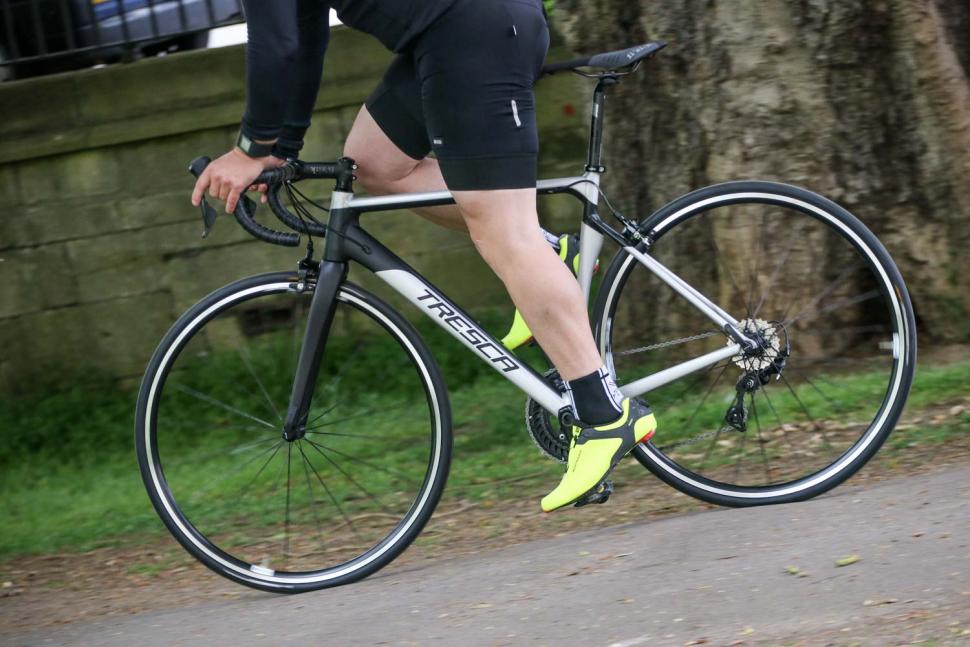
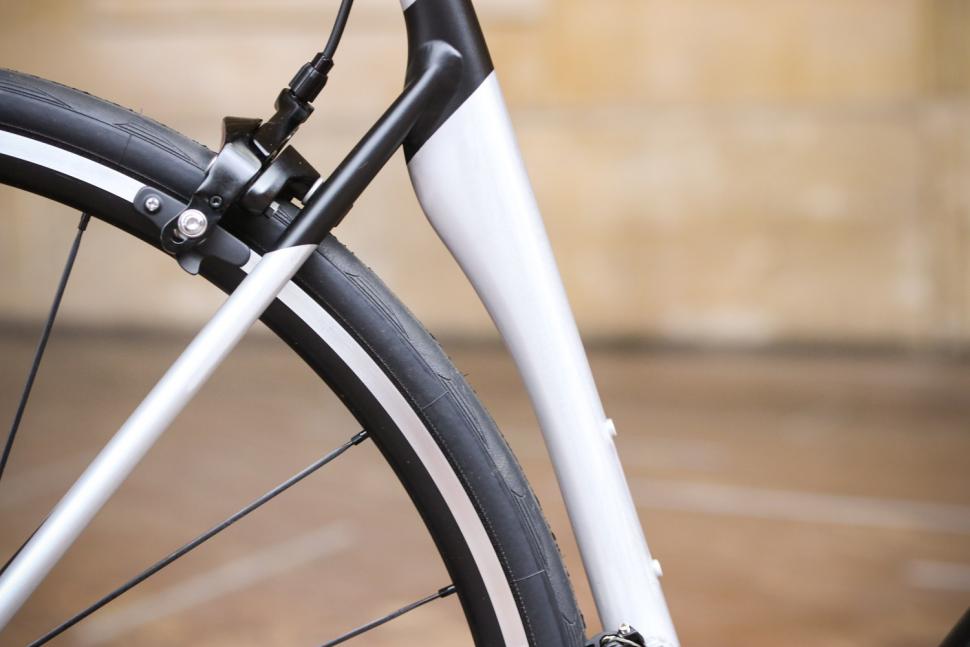

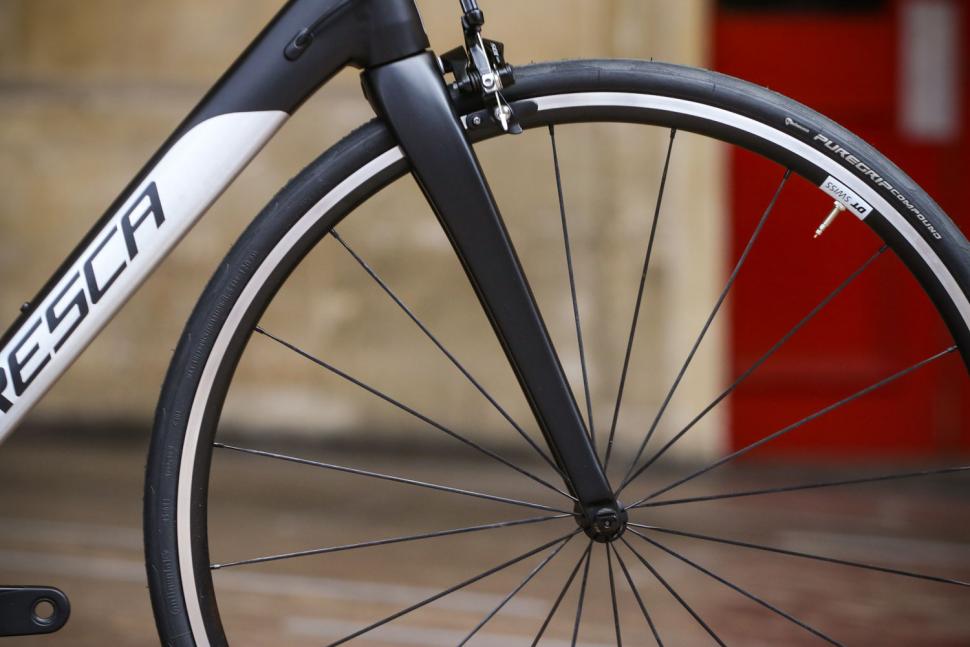
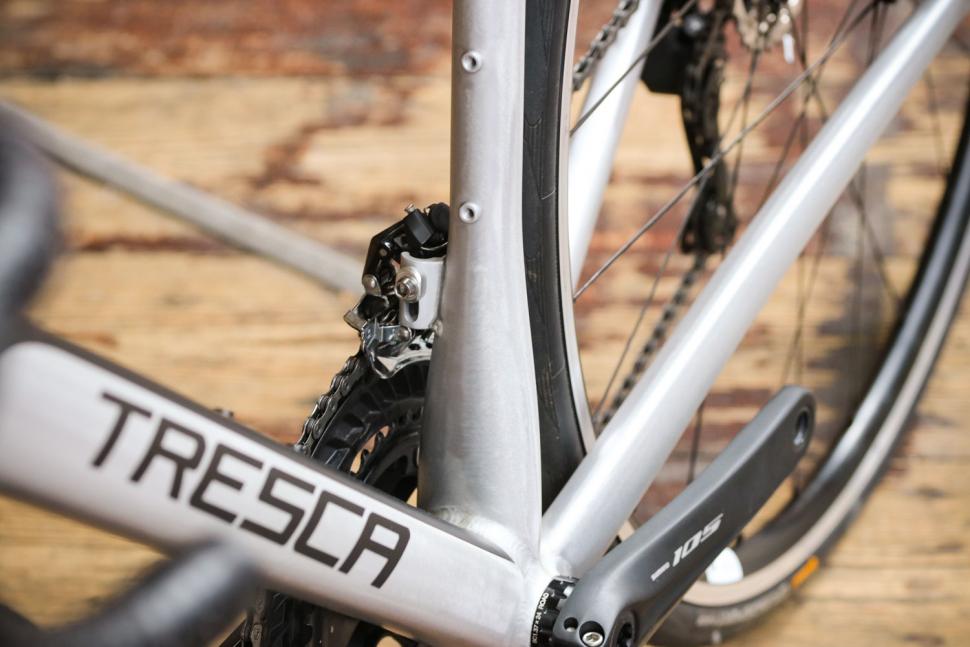
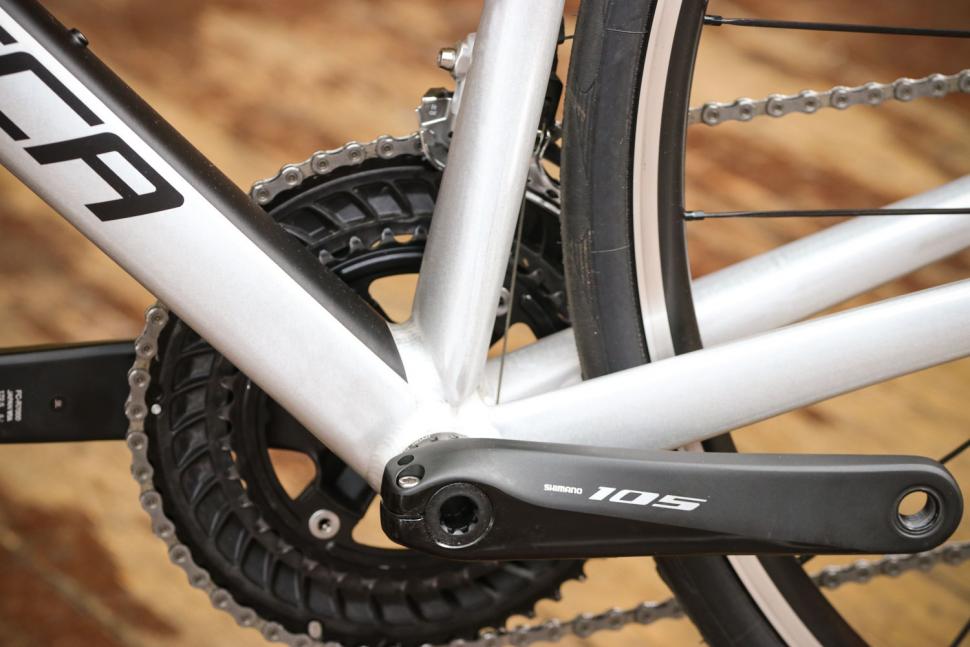
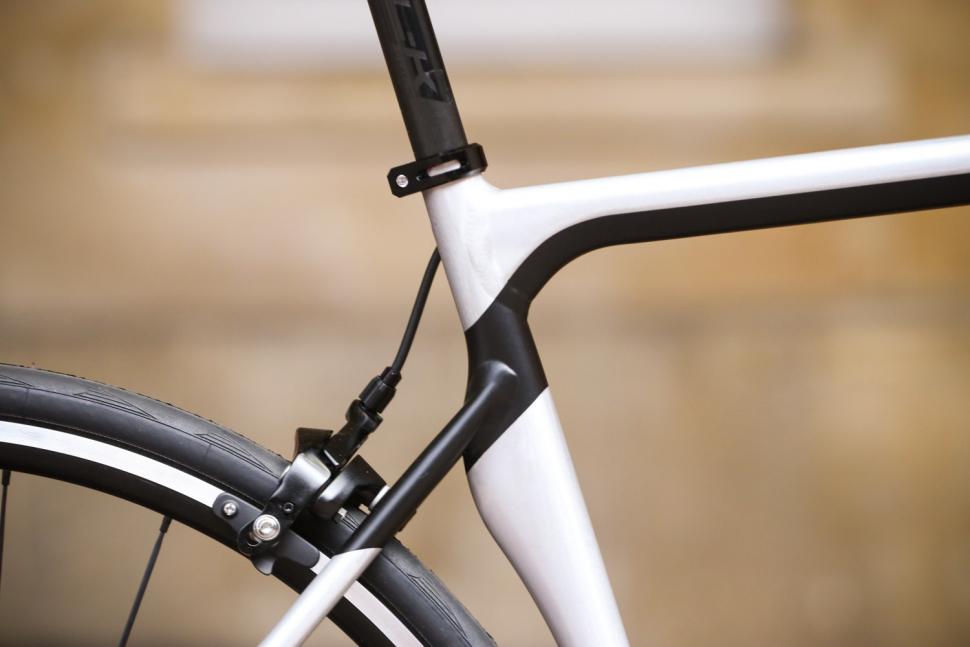
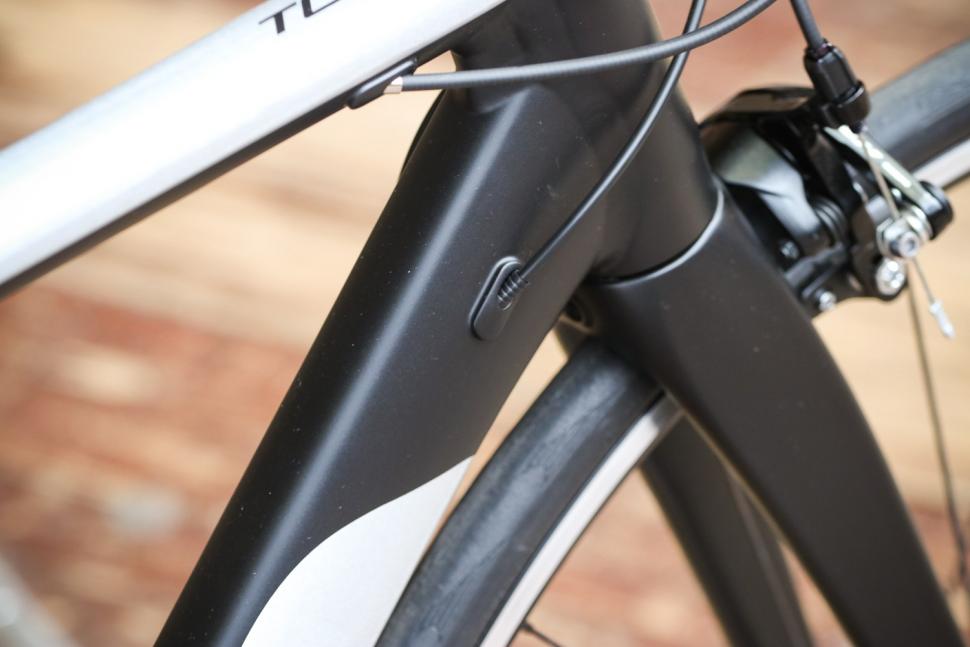
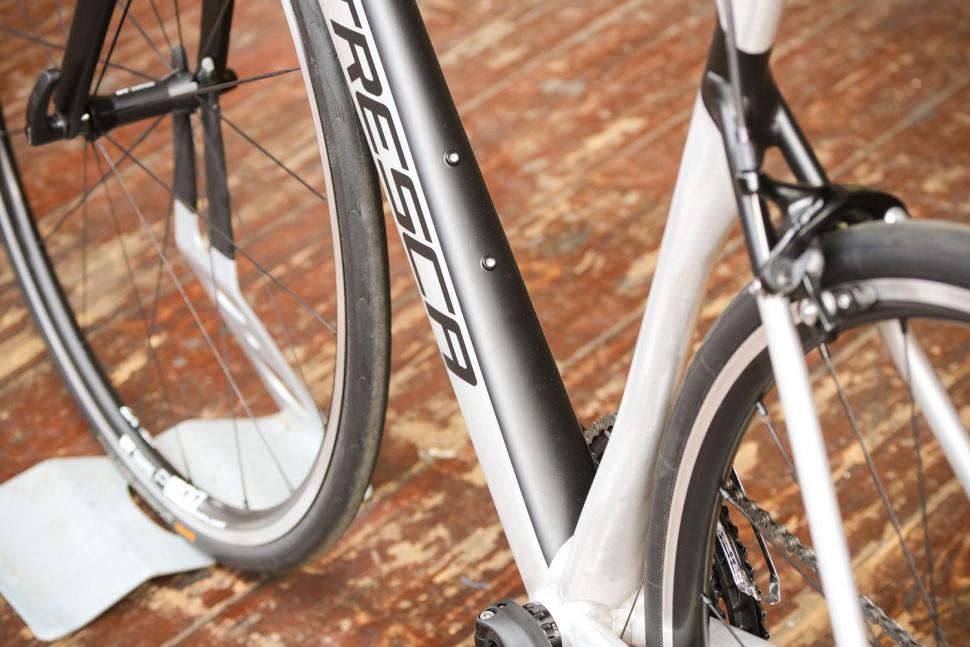
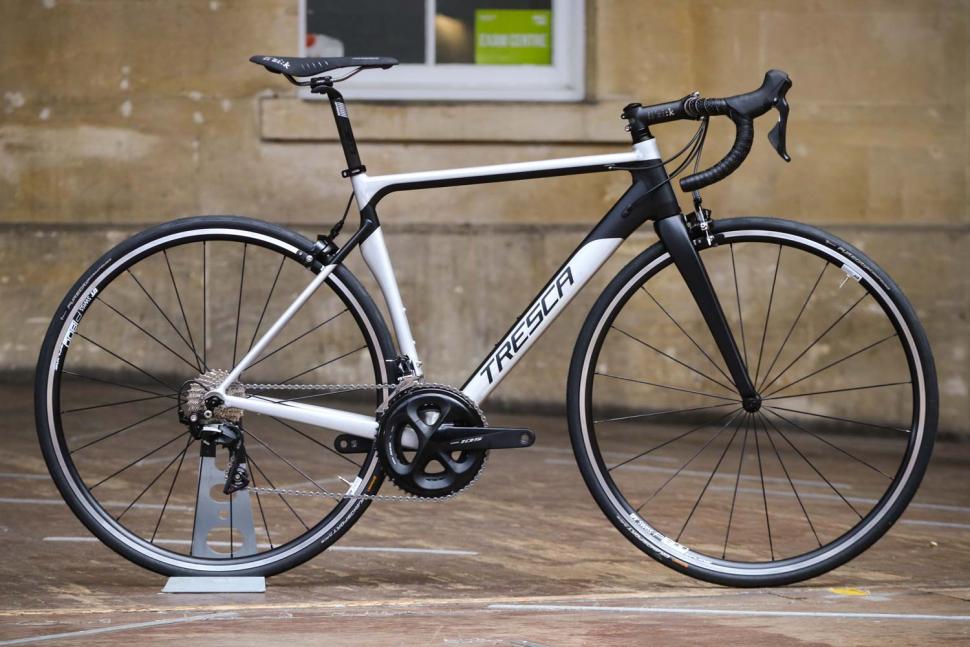
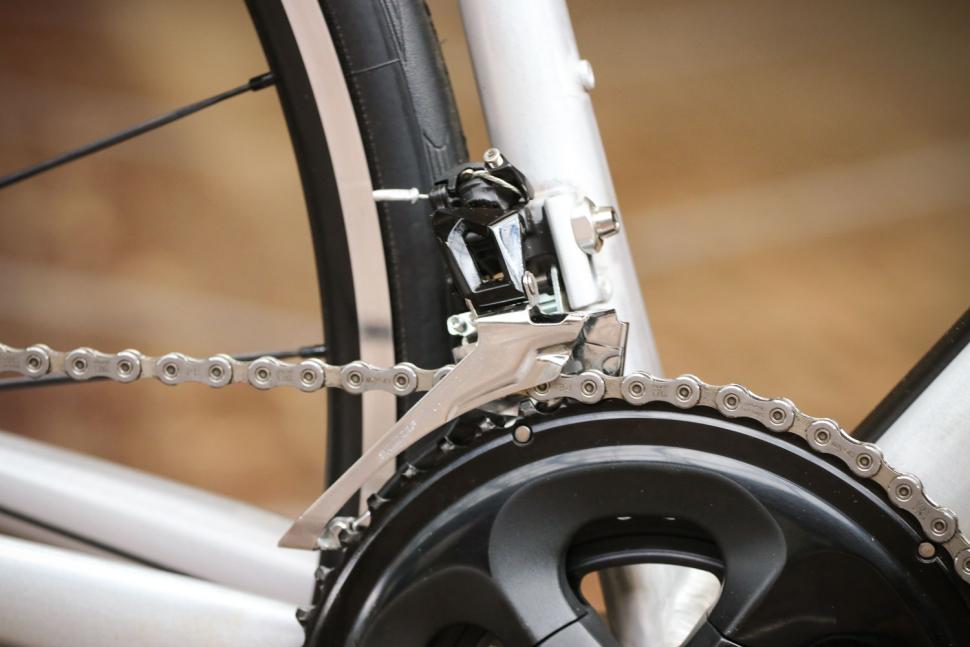
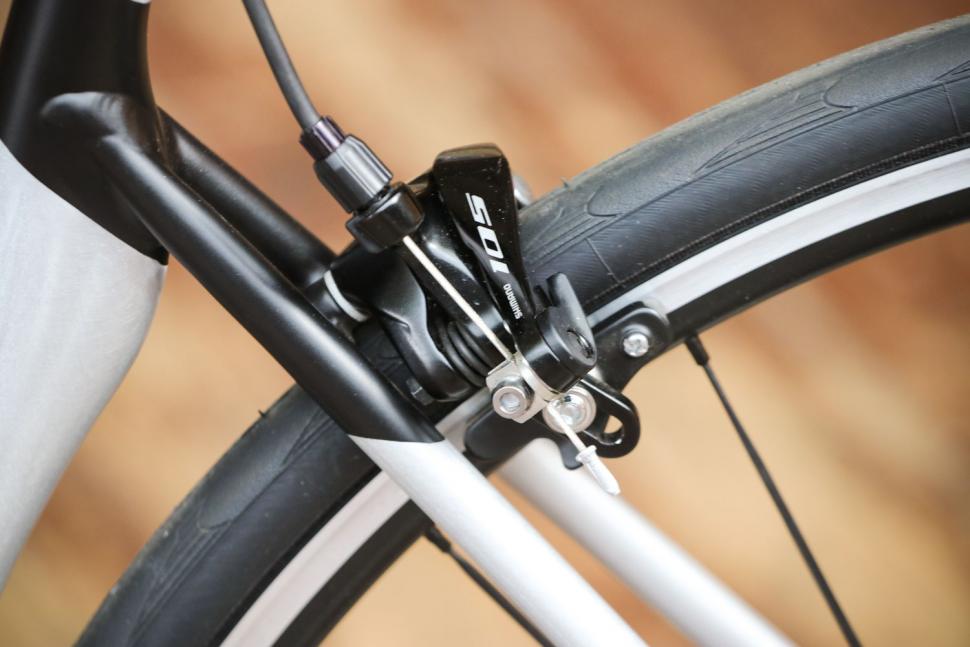
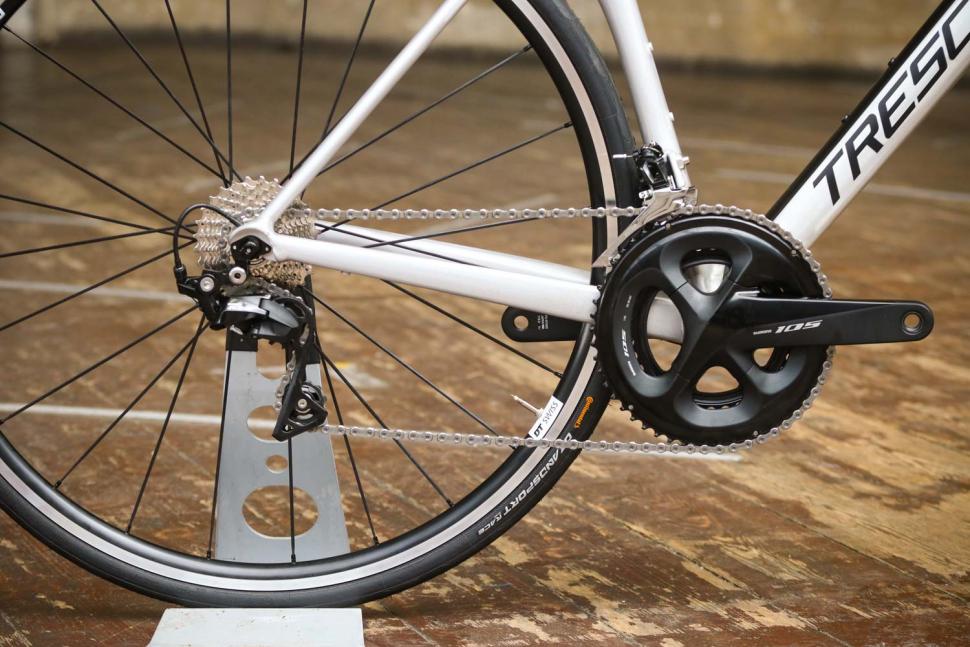

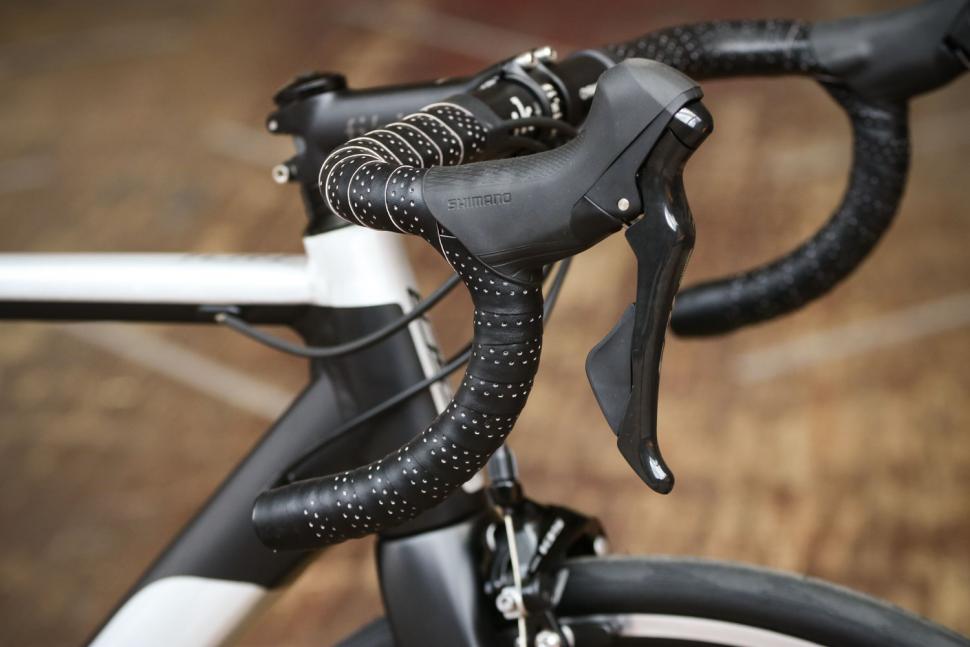
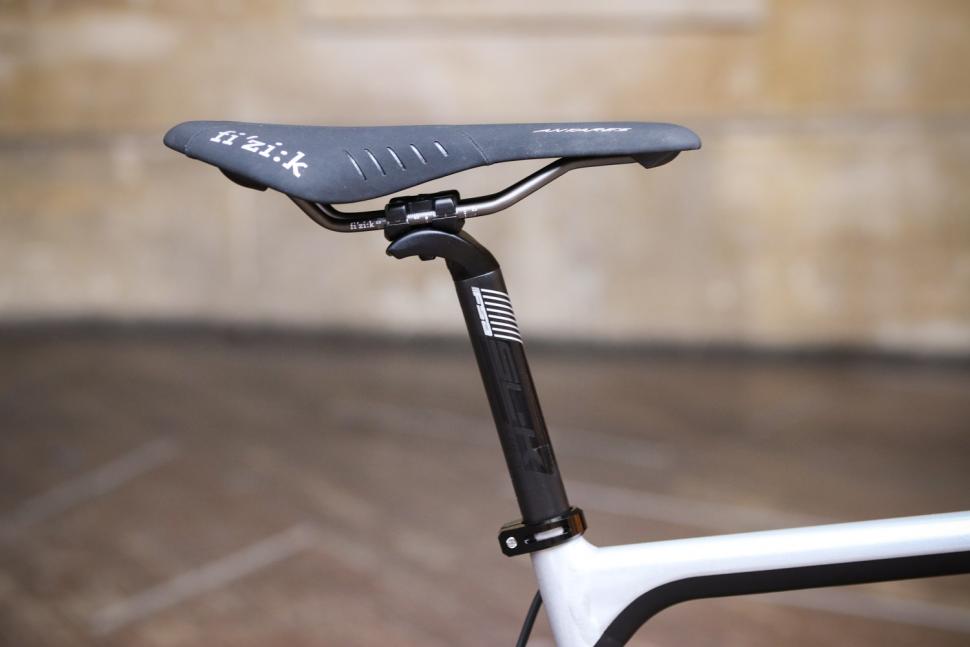
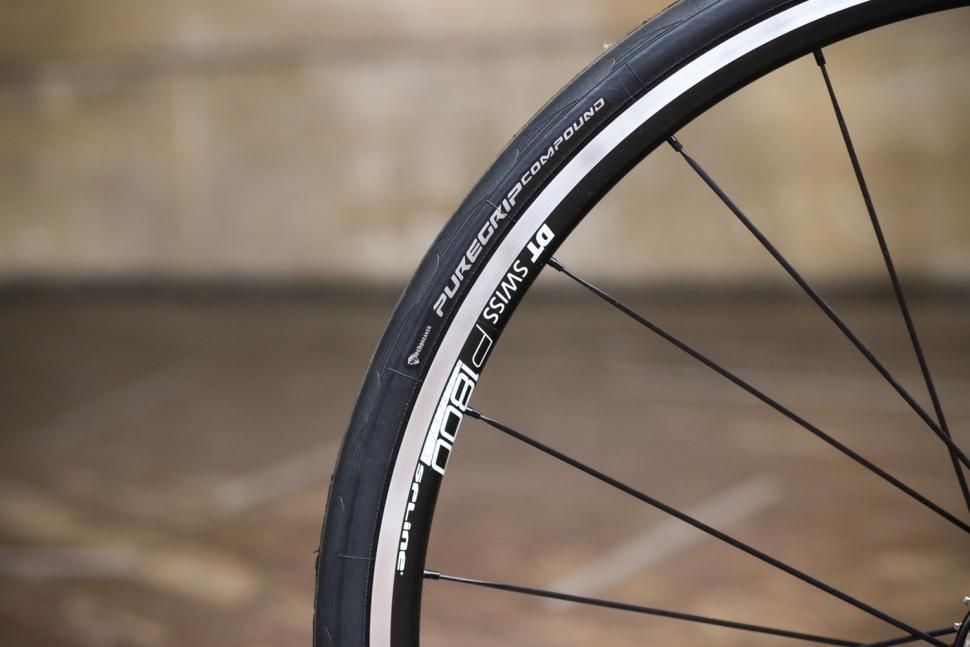
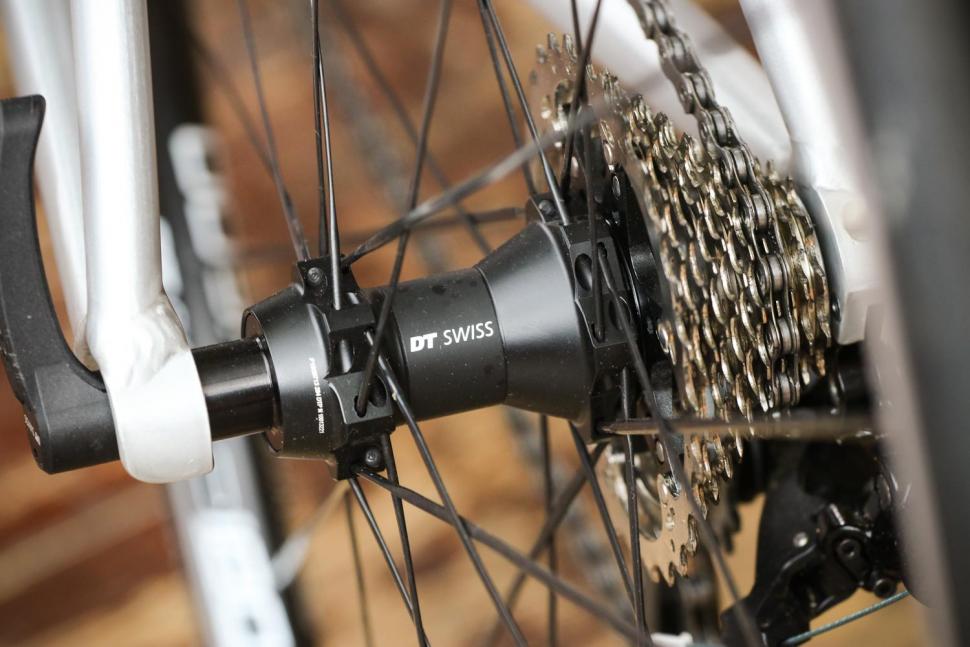
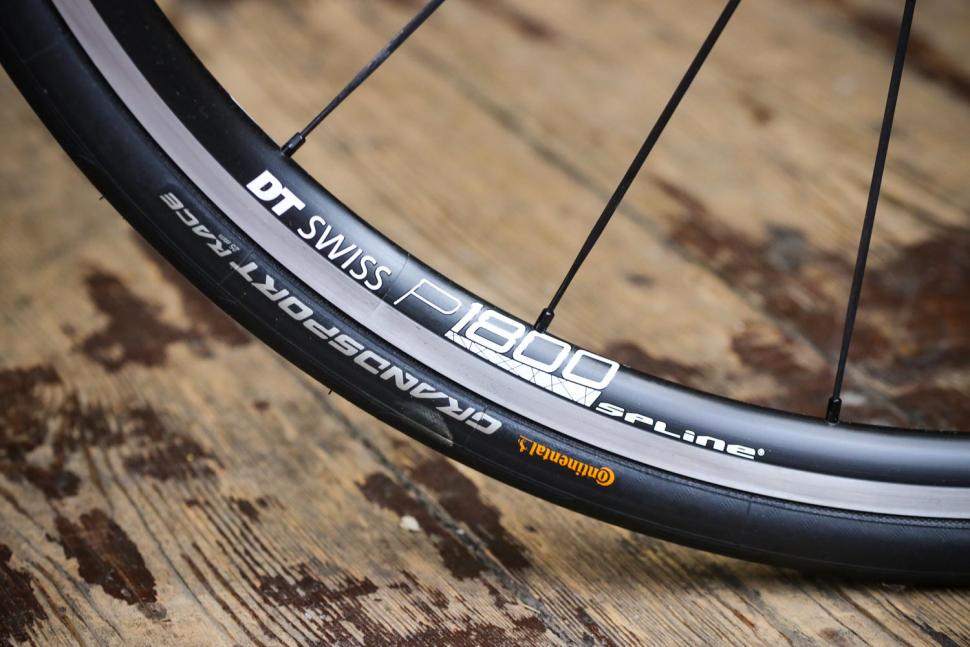
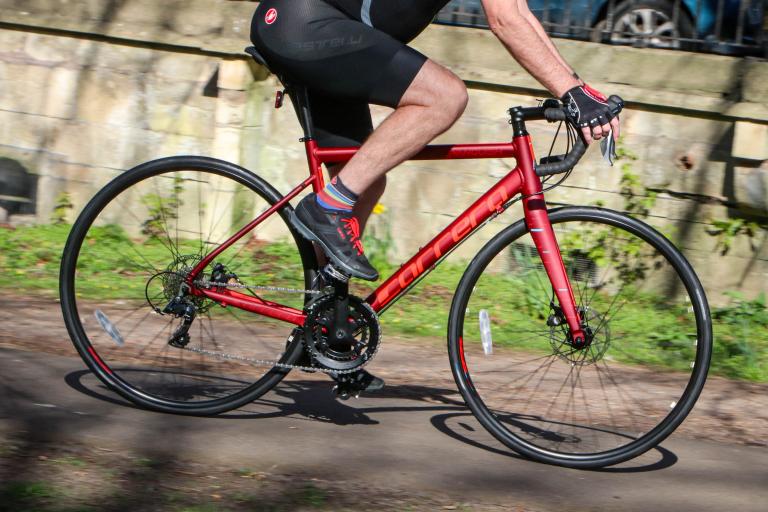
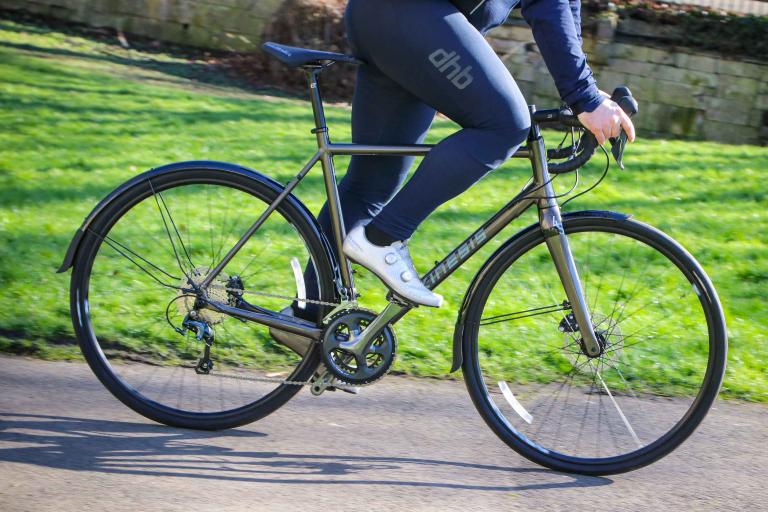
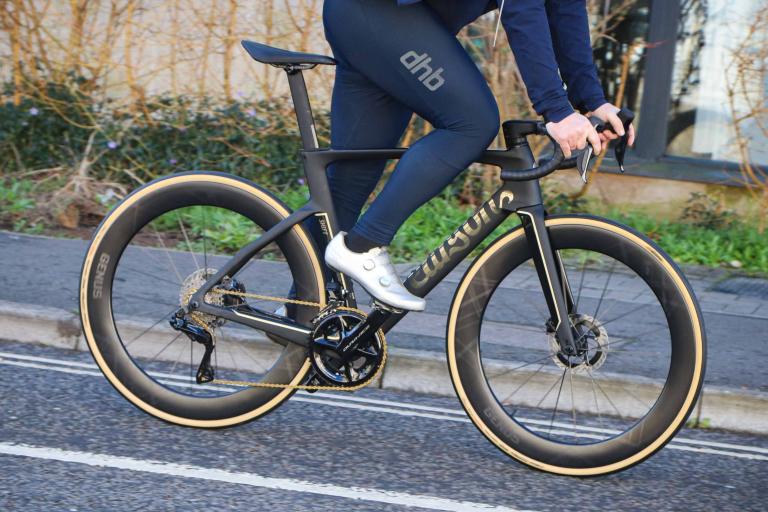
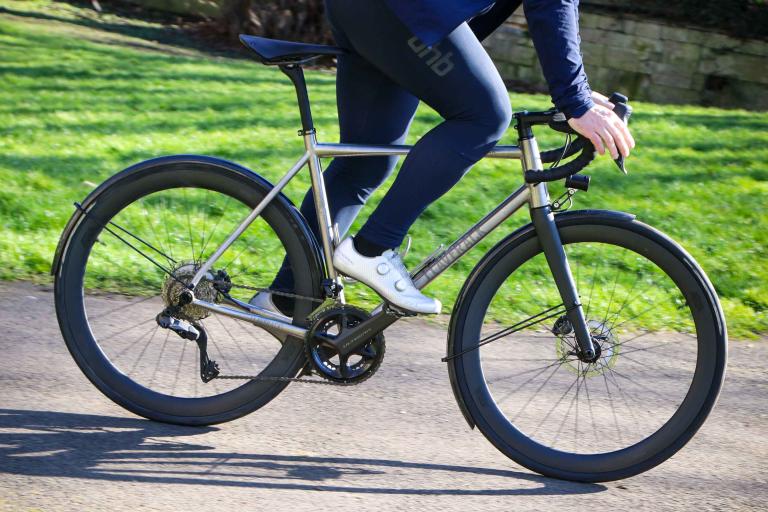
Not every freehub makes a noise, especially older ones manufactured before sounding like a Maxim gun apparently became a badge of honour.
Some quotes need to be put around the word "reciprocal" in the first paragraph.
this one is wide open for puns, come on people.
Do you mean this woman, who got out to marshall the truck through and is now walking back to said Wankpanzer which is blocking the road again as it...
This simply isn't true. I've been running radar lights for 10 years now. I cycle mostly on rural roads, I get notified of approaching vehicles up...
YUP!...
Genuinely puzzled as to how you've extrapolated that from what I said. Care to explain?
He is up against the global trading system, which has obviously been in the news a lot lately. Framebuilders in other countries can undercut him,...
Some kind of lens cleaner apparently
Have you owned Bont shoes? In my experience even the widest Lake shoes have had a bizarre form of narrowing way too much in the toe area. But the...